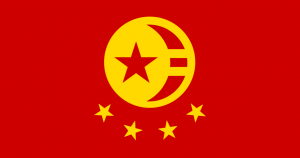Language/Yue-chinese/Grammar/Connecting-Ideas
As a Yue Chinese language teacher with 20 years of experience, I'm excited to teach you how to use conjunctions to connect ideas in Yue Chinese! In this lesson, you'll learn how to use the most commonly used conjunctions, including "and," "but," and "or." By the end of this lesson, you'll be able to form more complex sentences with ease, making your Yue Chinese conversations smoother and more natural.
Conjunctions 101
Conjunctions are words that connect words, phrases, or clauses within a sentence. They help us express more complicated ideas by linking them together in a logical way. In English, some common conjunctions include "and," "but," "or," and "so." In Yue Chinese, we also use conjunctions to connect ideas.
Here are some basic Yue Chinese conjunctions:
- 和 (hè) - and
- 但是 (dànshì) - but
- 或者 (huòzhě) - or
- 所以 (suǒyǐ) - so/therefore
Using 和 to Connect Ideas
The conjunction 和 (hè) is used to connect nouns, verbs, adverbs, and adjectives. It is the most commonly used conjunction in Yue Chinese and is equivalent to the English conjunction "and." It is used in the following ways:
1. To connect nouns
Example:
| Yue Chinese | Pronunciation | English |
|---|---|---|
| 爸爸和妈妈 | bàba hé māmā | Dad and Mom |
2. To connect verbs
Example:
| Yue Chinese | Pronunciation | English |
|---|---|---|
| 我喜欢唱歌和跳舞 | wǒ xǐhuān chànggē hé tiàowǔ | I like to sing and dance |
3. To connect adjectives
Example:
| Yue Chinese | Pronunciation | English |
|---|---|---|
| 那个女孩子很漂亮和聪明 | nèige nǚ háizi hěn piàoliang hé cōngmíng | That girl is beautiful and smart |
4. To connect adverbs
Example:
| Yue Chinese | Pronunciation | English |
|---|---|---|
| 知道和做到是两码事 | zhīdào hé zuòdào shì liǎng mǎshì | Knowing and doing are two different things |
Using 但是 to Express Contrast
The conjunction 但是 (dànshì) is used to connect clauses that express contrast, equivalent to the English conjunction "but." It is used in the following ways:
Example:
| Yue Chinese | Pronunciation | English |
|---|---|---|
| 我喜欢唱歌,但是不喜欢跳舞 | wǒ xǐhuān chànggē, dànshì bù xǐhuān tiàowǔ | I like to sing, but I don't like to dance |
Using 或者 for Choices
The conjunction 或者 (huòzhě) is used to connect nouns or verbs to indicate a choice, equivalent to the English conjunction "or." It is used in the following ways:
Example:
| Yue Chinese | Pronunciation | English |
|---|---|---|
| 你喜欢喝茶或者喝咖啡? | nǐ xǐhuān hē chá huòzhě hē kāfēi? | Do you like to drink tea or coffee? |
Using 所以 for Conclusions
The conjunction 所以 (suǒyǐ) is used to connect clauses to express conclusions or results, equivalent to the English conjunction "so" or "therefore." It is used in the following ways:
Example:
| Yue Chinese | Pronunciation | English |
|---|---|---|
| 我很忙,所以没时间看电影 | wǒ hěn máng, suǒyǐ méi shíjiān kàn diànyǐng | I'm very busy, so I don't have time to watch movies |
Connecting Ideas with Multiple Conjunctions
Sometimes, we need to connect more than two ideas together in a sentence. In this case, we can use multiple conjunctions in Yue Chinese. Here's an example:
Example:
| Yue Chinese | Pronunciation | English |
|---|---|---|
| 我爱吃中国菜,而且我喜欢喝茶 | wǒ ài chī zhōngguó cài, érqiě wǒ xǐhuān hē chá | I love to eat Chinese food, and I also like to drink tea |
In this example, we use the conjunctions 而且 (érqiě) and 和 (hé) to connect the ideas of eating Chinese food and drinking tea together.
Common Mistakes to Avoid
When using conjunctions in Yue Chinese, it is important to pay attention to the word order. The word order should follow the Subject-Verb-Object (SVO) structure. Here are some common mistakes to avoid:
1. Inverting the word order
Incorrect:
| Yue Chinese | Pronunciation | English |
|---|---|---|
| 我喜欢唱歌跳舞 | wǒ xǐhuān tiàowǔ chànggē | I like to dance sing |
Correct:
| Yue Chinese | Pronunciation | English |
|---|---|---|
| 我喜欢唱歌和跳舞 | wǒ xǐhuān chànggē hé tiàowǔ | I like to sing and dance |
2. Using the wrong conjunction
Incorrect:
| Yue Chinese | Pronunciation | English |
|---|---|---|
| 我喜欢唱歌,而没有跳舞 | wǒ xǐhuān chànggē, ér méiyǒu tiàowǔ | I like to sing, but don't dance |
Correct:
| Yue Chinese | Pronunciation | English |
|---|---|---|
| 我喜欢唱歌,但是不喜欢跳舞 | wǒ xǐhuān chànggē, dànshì bù xǐhuān tiàowǔ | I like to sing, but I don't like to dance |
3. Not using conjunctions at all
Incorrect:
| Yue Chinese | Pronunciation | English |
|---|---|---|
| 我喜欢唱歌,不喜欢跳舞 | wǒ xǐhuān chànggē, bù xǐhuān tiàowǔ | I like to sing, don't dance |
Correct:
| Yue Chinese | Pronunciation | English |
|---|---|---|
| 我喜欢唱歌,但是不喜欢跳舞 | wǒ xǐhuān chànggē, dànshì bù xǐhuān tiàowǔ | I like to sing, but I don't like to dance |
Remember to use the correct word order and the appropriate conjunctions to ensure that your sentences are grammatically correct and convey the intended meaning.
Practice Makes Perfect
To become more comfortable using conjunctions in Yue Chinese, it's important to practice using them in various contexts. Here are some exercises to help you get started:
1. Complete the following sentences using appropriate conjunctions:
- 我喜欢吃肉,___我也喜欢吃蔬菜。 - 他很聪明,___他的汉语说得很好。 - 你喜欢看电影,___你喜欢看电视剧?
2. Write a short paragraph (5-6 sentences) about your favorite hobbies or interests, using at least two different conjunctions.
Keep practicing your conjunctions, and soon you'll be speaking Yue Chinese like a pro!
Related Lessons
- Possessive Pronouns
- Personal Pronouns
- Describing Actions
- Basic Sentence Structure
- Describing People and Things
- Expressing Comparison
- Questions and Negations
- Conditional Mood
- Plurals
- Verbs Action and Stative

